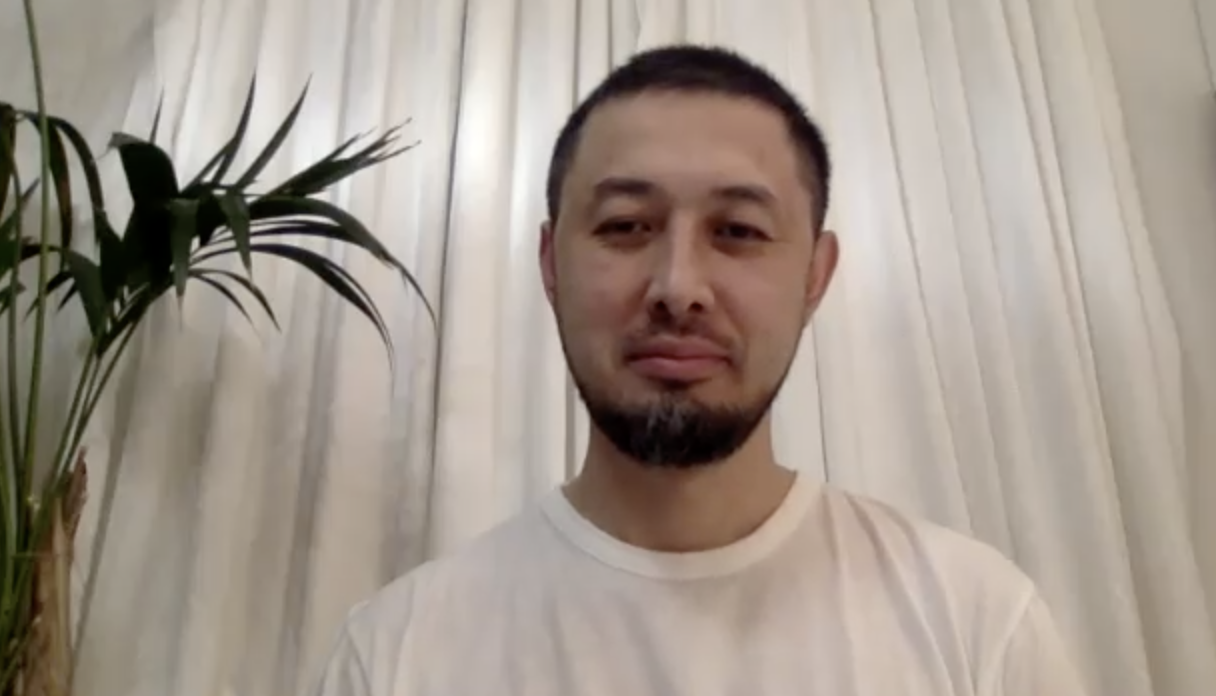On March 16, a district court in Kazakhstan refused to clarify the vague terms of activist Alnur Ilyashev’s sentence, which prohibits him from “engag[ing] in civil and public activities” for five years.
During a hearing after Mr. Ilyashev sought clarification, the court stated, “[i]f you think that you are prohibited from engaging in any civil and public activity … then it is prohibited … if not, then you can.” The result of the court’s refusal to provide any guidance or elaboration on these terms is to chill a broad swath of everyday speech; Mr. Ilyashev is now unsure whether he is allowed to teach, write, or even recite poetry.
The restriction on “engag[ing] in civil and public activities” was already an overbroad and disproportionate violation of Mr. Ilyashev’s right to freedom of expression. But now, the court’s decision renders the sentence so ambiguous as to breach international standards on vagueness. Nor is this a question without consequence. Mr. Ilyashev faces severe repercussions should he be deemed to have breached this restriction: under Article 430 of the Kazakhstan Criminal Code, he could be sentenced to up to three years in prison.
“Kazakhstan’s courts should stop compounding the violations of Mr. Ilyashev’s rights; they should afford Mr. Ilyashev a minimum of legal certainty by clearly explaining the terms of his sentence, rather than using its vagueness to further suppress his political activity,” said Vânia Costa Ramos, Criminal Lawyer, Vice-Chair of the European Criminal Bar Association, and TrialWatch Expert.
CFJ calls on the Almaty City Court to clarify the nature and scope of Mr. Ilyashev’s sentence and reiterates its call for his conviction to be reversed. CFJ also calls on Kazakhstan to respect Mr. Ilyashev’s right to freedom of expression under international law.
Background
Alnur Ilyashev was convicted in September 2020 of ‘spreading knowingly false information during an emergency,’ based on three social media posts in which he accused Kazakhstan’s ruling party of corruption and incompetence. The Fairness Report on his trial, which was monitored by CFJ’s partner the American Bar Association Center for Human Rights, concluded that the proceedings violated his rights to freedom of expression and a fair trial, including because the prosecution “stemmed from improper motivations.”
Mr. Ilyashev was sentenced to a five-year ban on civic or political public activities. The Fairness Report, authored by Vânia Costa Ramos and staff at the ABA Center for Human Rights, found that the “ban is itself incompatible with the right to freedom of opinion and expression” and represents “an overbroad and grossly disproportionate restriction on protected speech.” Mr. Ilyashev’s sentence also included a ban on “creating and taking part in the activities of political parties, public associations and foundations” for five years and three years of probation, including “forced labor for one hundred hours annually during the entire sentence period,” and a fine.
Following his trial, Mr. Ilyashev sought clarification of the ban on civic or public activities from the Medeu District Court No. 2 of Almaty, Kazakhstan, after unsuccessfully seeking an explanation from the Medeu Probation Service Division and the Prosecutor’s Office of the Medeu District of Almaty City. In his petition to the court, Mr. Ilyashev asked whether he is prohibited from “writ[ing] and publish[ing] [his] own literary works,” “recit[ing] poetry” or “engag[ing] in enhancing the citizens’ culture, including through pedagogical activities in the field of education.” In response, the court gave a circular answer, explaining in its judgment “that it is forbidden for him to engage in any civil and public activities.” Mr. Ilyashev has appealed the court’s refusal to clarify the terms of his sentence to the Almaty City Court.
Petition to the District Court in Almaty: English (unofficial translation) and Russian (русский)
Judgment on Petition to the District Court in Almaty: English (unofficial translation) and Russian (русский)
